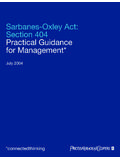Transcription of Careers for
1 Careers forLaw GraduatesContentsIntroduction.. 2 Why Do a Law Degree? 2 Emerging Demand for Law Graduates 2 Education and Training.. 3 Core Areas of Knowledge 3 Bachelor of Laws (LLB) 3 Diploma in Law 4 Cost of a Law Degree and Scholarships 4 Entry Points to the Legal Profession.. 5 Students 5 Graduates 5 Lawyers with Qualifications Gained Overseas 6 Legal Qualifications for Non-Legal or Support Staff 6 Steps Before You Can Practise Law ..6 practical Legal Training 6 Becoming Admitted to Legal Practice 6 Getting a Practising Certificate 7 Career Options.. 7 Solicitor 7 Barrister 8 Court System 8 Corporate Sector 9 Government Sector 9 Community Sector 10 Legal Aid Sector 10 Academia 10 Legal Publishing 11 Other Areas of Legal Practice 11 Graduate Profiles.
2 12 Acknowledgments ..18 NOTE:Wherever you see this icon please go to >>What Job For You>>Career Profiles>>Law>>More Information for continued discussion and/or useful websites on that in law // IntroductionHailed as one of the generalist degrees of the 1990s, a Law degree has now become a passport to work in a wide range of fields, only one of which is private legal practice. The law and legal system affects nearly every aspect of our society. Lawyers are the main link between the legal system and the community. It is a discipline of long tradition and constant core skills and values that are essential for the competent practise of law include:analytical and problem-solving skillscritical reading abilitiesgeneral research skillsoral communication and listening abilitiestask organisation and management skillswriting , individuals who wish to prepare adequately for a career in law, or for any other professional service that involves the use of legal skills, should seek educational, extracurricular and life experiences that will assist them in developing those attributes.
3 (Source: )Why Do a Law Degree?While the majority of graduate lawyers practise law in traditional environments, an increasing number are using their degree to gain entry into Careers in sectors as diverse as politics, international finance, sports, diplomacy, health, the media and environmental protection. Recognising this, Law Schools in Australia often offer combined or double degrees. Students undertaking a double degree gain two bachelor degrees at the end of a five-year course of study: Arts/Law; Commerce/Law; Business/Law; and Science/Law are common. Law is considered to be one of the most intellectually challenging of all degrees and employers view Law graduates as valuable employees, expecting that they have received rigorous training in independent, analytical thinking and have been instilled with a good work ethic.
4 Emerging Demand for Law GraduatesAreas of practice in which the demand for lawyers was strongest in 2006-07:Melbournebanking & financecorporate/commercial (particularly mergers & acquisitions)litigationprivate equityprojectspropertytaxworkplace relationsSydneybanking & financeconstruction (front end)corporate, mergers & acquisitionsemployment servicesfinancial services (funds management and superannuation)Brisbane and Perthcommercial propertyconstruction/infrastructureenerg y & resources experienceprojectspublic private partnerships areas generated by the major resources players and government authorities.(Source: Mahlab Private Practice Australia 2007 )The international market for Australian lawyers is on the increase.
5 It is expected that high levels of international recruitment of Australian lawyers will continue. Dedicated recruitment campaigns by international firms in the Australian market are becoming more prevalent each year. In London the primary demand is for lawyers with between two to five years experience in Banking and Finance and Corporate/Mergers and Acquisitions. In the Middle East there is a demand for lawyers with technical knowledge and expertise in major projects and project finance, infrastructure, energy, intellectual property and information technology. In China the requirement for lawyers with Mandarin language skills is high. Large numbers of Australian lawyers are based in Hong Kong and travel on a regular basis to the mainland to work on large scale transactions and projects.
6 Offices of international law firms in Thailand, Malaysia and the Pacific Islands also recruit Australian lawyers. Law is considered to be one of the most intellectually challenging of all degrees and [expect graduates] have received rigorous training in independent, analytical thinking and good work Careers australia // Education and TrainingBecoming a lawyer involves: (i) completing a theoretical Law qualification; (ii) completing pre-admission practical Legal Training; (iii) becoming admitted into legal practice; and (iv) obtaining a practising certificate. Core Areas of KnowledgeThere are key areas of knowledge you will have to pass to obtain a Law degree, they are known as the Priestley 11.
7 Administrative Law Civil Procedure Company Law Constitutional Law Contracts Criminal Law and Procedures Equity (including Trusts) Evidence Professional Conduct (including Basic Trust Accounting) Property, both Real (including Torrens System Land) and Personal Torts Beyond these basic requirements, individual Law Schools choose their own compulsory subjects and offer a broad range of elective courses. This allows you to choose subject areas of your interest. Apart from the most common disciplines to be combined with Law (ie. Arts, Commerce and Business) there is an enormous range of other double degrees on offer in Australia. Bachelor of Laws (LLB) Careers in law are highly sought after, as people regard this career as having a certain status, as well as being highly paid.
8 As a result, the entry requirements for Law are very Law DegreeThe Combined Law Degree is the most common pathway for students wishing to study Law after completing Year 12. Combined Law is a five-year full-time course that pairs the Bachelor of Laws (LLB) degree with a Bachelor of Arts/Business/Commerce/Science. You receive two bachelor degrees at the end of a five-year course. Students choose the second degree in an area which suits their interests and career a school leaver, if you are not offered a place in a Combined Law Degree, but still want a career in law, you may apply for a transfer to Combined Law if you perform very well in your first year of full-time university studies in another degree course.
9 Careers in law // You may receive credits for the courses that you have already completed. You will need to obtain information about this from the university directly. Alternatively, you could complete another degree and then apply for Graduate Law Law DegreeSome students opt to do an LLB as a Single Degree. In some universities, such as Victoria University and Southern Cross University, this option is open to school leavers (or to those with one year of tertiary study). In a majority of universities this option is open only to students who have already completed an undergraduate degree in another discipline. You will need to contact individual universities for the most up-to-date information on the prerequisites for a Single Law Entry and the Melbourne Model The first requirement for graduate entry to the LLB at most Australian universities is a previous tertiary degree.
10 A good example of this is Juris Doctor (JD) under the Melbourne Model being offered by The University of is a fully graduate Law degree. Applicants must have either an undergraduate degree in a discipline other than Law or a degree in Law from a different legal system. JD leads to admission to the legal profession in all Australian jurisdictions and can be used as a basis for seeking admission in many overseas jurisdictions as Law School selects students from a broad range of backgrounds who have a record of academic excellence, and are intellectually rigorous, motivated and engaged with the study of Law. Selection into the JD is based on academic results in all tertiary study undertaken, the score received in a legal aptitude test (LSAT) and a short personal statement.
















